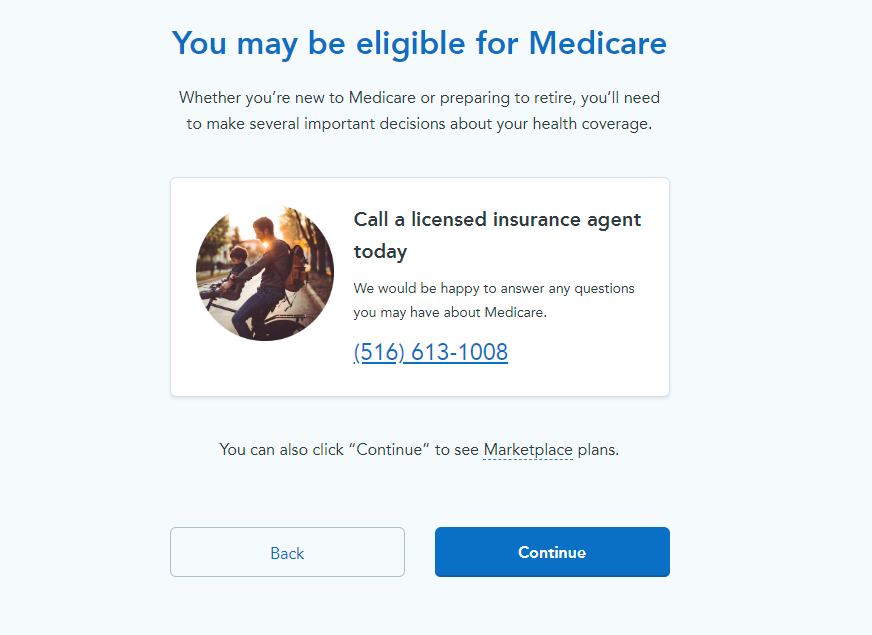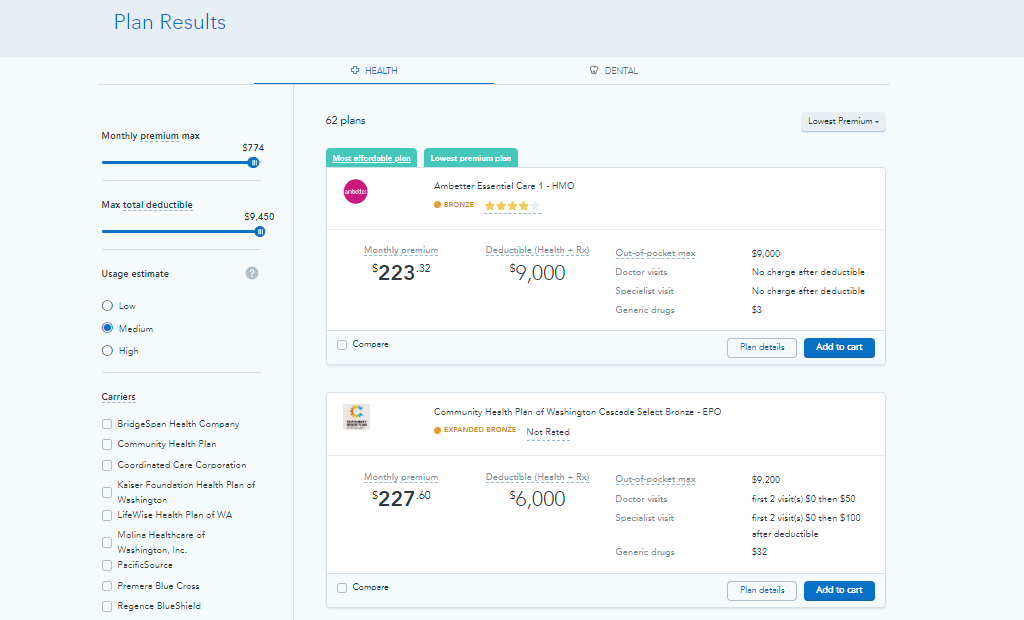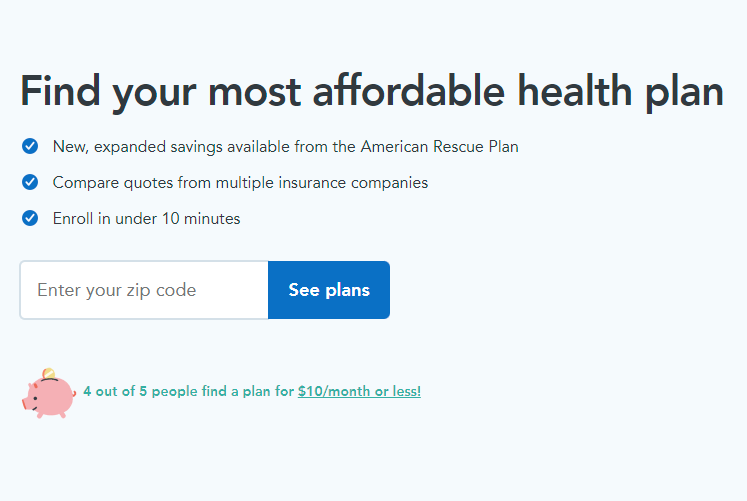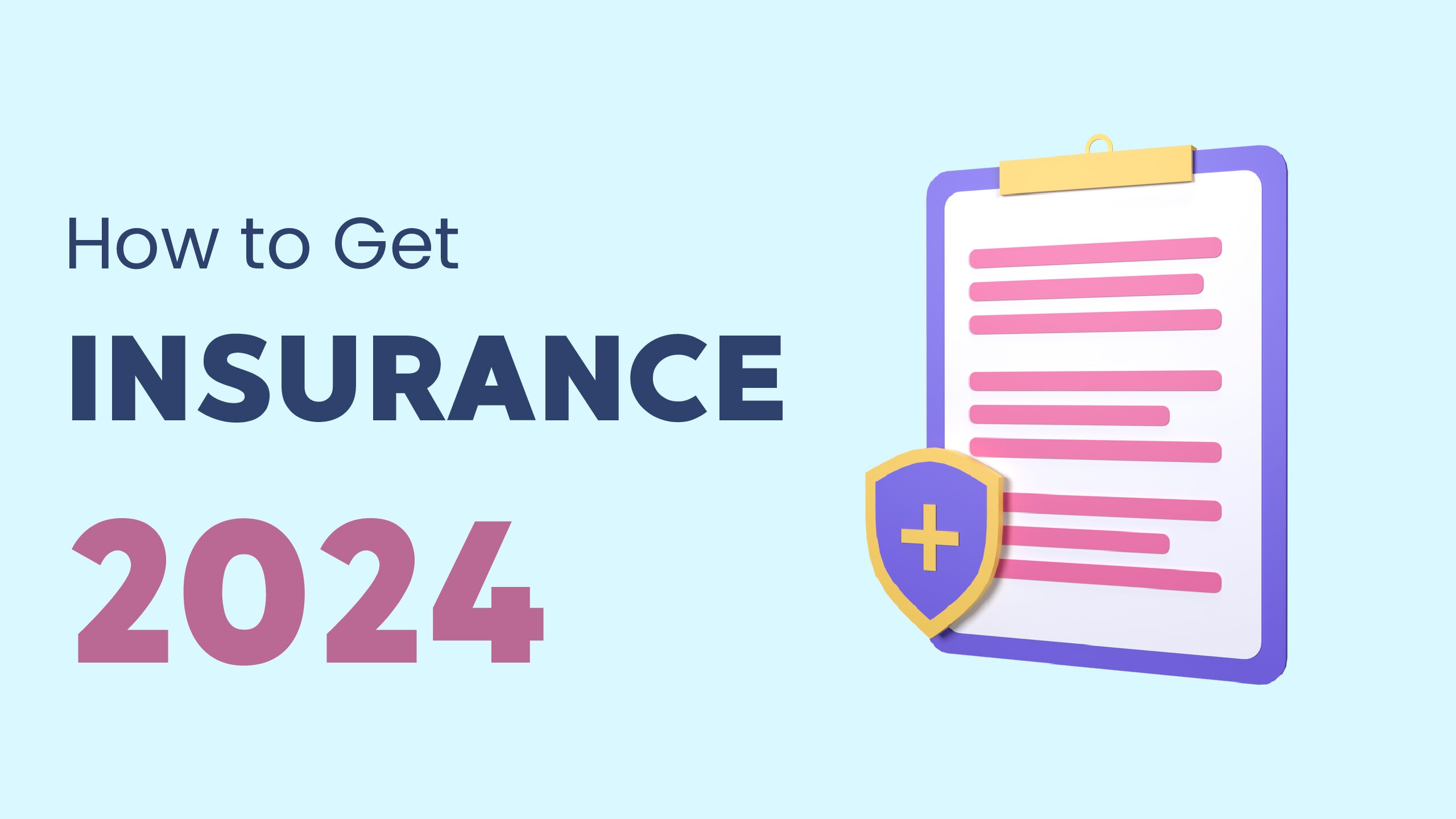How to get health insurance in New Hampshire is a critical question for residents looking to secure comprehensive coverage for themselves and their families. Understanding the landscape of health insurance options in the state is the first step towards accessing quality healthcare coverage.
From exploring the Health Insurance Marketplace to considering Medicaid, CHIP, employer-sponsored plans, and private insurance options, there are various avenues available to New Hampshire residents. In this guide, we’ll delve into the intricacies of obtaining health insurance in New Hampshire, providing insights into available options and resources to help individuals make informed decisions tailored to their specific needs and circumstances.
Table of Contents
Understanding Health Insurance in New Hampshire
Understanding Health Insurance in New Hampshire is essential for residents seeking to navigate the intricacies of obtaining coverage. Health insurance serves as a vital safety net, providing financial protection against medical expenses ranging from routine check-ups to unforeseen emergencies. In New Hampshire, individuals and families have access to a variety of options tailored to their needs and circumstances, ensuring they can find a plan that suits their healthcare requirements and budgetary constraints.
Understanding the various health insurance options in New Hampshire is crucial. This encompasses plans such as employer-sponsored coverage, individual private insurance, and government-assisted programs like Medicaid and CHIP, in addition to Medicare, which caters to individuals over 65 or those with certain disabilities. It’s important to grasp the distinct eligibility requirements, benefits, and cost-sharing details of each plan type to make informed decisions.
Moreover, understanding the role of health insurance in New Hampshire’s healthcare landscape involves recognizing the importance of preventive care and access to essential medical services. Health insurance plans typically cover preventive services such as vaccinations, screenings, and wellness exams, helping individuals maintain their health and detect potential issues early on. By prioritizing preventive care and utilizing available healthcare services, residents can better manage their health and reduce the likelihood of more serious health complications down the line.
Furthermore, being aware of the financial aspects of health insurance in New Hampshire is crucial for making informed decisions. This includes understanding premiums, deductibles, copayments, coinsurance, and out-of-pocket maximums associated with different plans. By evaluating these financial components alongside coverage benefits, individuals can determine which plan offers the most comprehensive coverage at a cost that aligns with their budget. Additionally, exploring options for financial assistance, such as subsidies or tax credits through the health insurance marketplace, can further enhance affordability for eligible individuals and families.
In short, getting to know health insurance in New Hampshire means learning about different plans, focusing on preventive care, and looking at the costs. By understanding these parts of health insurance, people can choose wisely for their healthcare, making sure they get the medical help they need without too much financial worry.
Exploring Your Health Insurance Options in New Hampshire
Exploring your health insurance options in New Hampshire provides a pathway to finding the coverage that best fits your needs and circumstances. With a range of options available, including employer-sponsored plans, private insurance, and government programs, residents have the opportunity to choose a plan that aligns with their healthcare needs and financial situation. Below we will discuss all the potential health insurance options for New Hampshire residents.
New Hampshire’s Health Insurance Marketplace
New Hampshire’s Health Insurance Marketplace, known as the New Hampshire Health Insurance Marketplace, serves as a pivotal platform for individuals and families to explore, compare, and purchase health insurance plans. Operated through the federal exchange, the marketplace offers a centralized hub where residents can access a variety of health insurance options from different insurance providers.
One of the primary advantages of the New Hampshire Health Insurance Marketplace is its accessibility and user-friendly interface. Through the marketplace website, individuals can easily navigate various plans, compare coverage benefits and costs, and determine eligibility for subsidies and financial assistance. The platform provides valuable tools and resources to help consumers make informed decisions about their healthcare coverage.
The New Hampshire Health Insurance Marketplace offers a range of health insurance plans to suit different needs and preferences. These plans come with varying levels of coverage, including bronze, silver, gold, and platinum tiers, allowing individuals to choose the plan that best aligns with their healthcare needs and budget. The marketplace often features special enrollment periods for individuals experiencing qualifying life events, such as marriage, childbirth, or loss of other coverage.
Financial assistance is a key feature of the New Hampshire Health Insurance Marketplace, particularly for those who qualify for subsidies and tax credits. These subsidies help reduce the cost of premiums, making health insurance more affordable for eligible individuals and families. By entering basic information such as income, household size, and age into the marketplace’s online tools, users can estimate their subsidy eligibility and view plans that fit their budget.
Navigating the New Hampshire Health Insurance Marketplace is facilitated by trained navigators and assisters who provide personalized assistance to individuals and families throughout the enrollment process. These professionals offer guidance on plan selection, subsidy eligibility, and enrollment procedures, ensuring that consumers have the support they need to make informed decisions about their healthcare coverage.
The New Hampshire Health Insurance Marketplace plays a vital role in expanding access to quality healthcare coverage for residents across the state. By offering a diverse array of plans, financial assistance options, and personalized support services, the marketplace empowers individuals and families to secure the coverage they need to protect their health and well-being.
For streamlined navigation and assistance with plan comparison and enrollment, New Hampshire residents can utilize online platforms like HealthSherpa. These resources provide tools and support to simplify the process of finding and applying for health insurance, helping individuals make informed decisions about their coverage needs and financial options.

Medicaid in New Hampshire
Medicaid in New Hampshire serves as a crucial safety net program, offering healthcare coverage to low-income individuals and families who may otherwise struggle to afford essential medical services. Administered jointly by the federal government and the state, Medicaid provides a wide range of healthcare benefits, including doctor visits, hospital stays, prescription drugs, preventive care, and more, to eligible residents across the state.
One of the defining features of Medicaid in New Hampshire is its income-based eligibility criteria. The program considers factors such as household size, income level, and citizenship status when determining eligibility. It covers individuals and families who meet specific income thresholds set by the state, providing them with comprehensive health coverage at little to no cost. Additionally, New Hampshire has expanded its Medicaid program under the Affordable Care Act, extending coverage to more low-income adults, including those who were previously ineligible.
Enrolling in Medicaid in New Hampshire is a straightforward process, with multiple avenues available for application. Residents can apply online through the New Hampshire Department of Health and Human Services website, by phone, by mail, or in person at local Medicaid offices or community organizations. The application requires providing information about household income, assets, expenses, and other relevant details to determine eligibility.
Once enrolled, beneficiaries gain access to a network of healthcare providers who accept Medicaid insurance, ensuring that they can receive timely and quality medical care when needed. Medicaid in New Hampshire covers a wide range of services, including primary care, specialist visits, hospital care, mental health services, substance abuse treatment, and more, helping individuals and families maintain their health and well-being without financial strain.
Medicaid serves as a lifeline for thousands of New Hampshirites, offering them peace of mind and financial security knowing that their healthcare needs are covered, regardless of their income level or health status. It plays a critical role in promoting access to healthcare services, reducing disparities in health outcomes, and improving the overall health and well-being of individuals and communities across the state.
New Hampshire’s Children’s Health Insurance Program (CHIP)
New Hampshire’s Children’s Health Insurance Program (CHIP), known as Granite Advantage Health Care Program, is a vital initiative aimed at providing affordable healthcare coverage to children in low-income families across the state. Administered by the New Hampshire Department of Health and Human Services, CHIP offers comprehensive health benefits to children under the age of 19, ensuring they have access to essential medical services, including doctor visits, immunizations, hospital care, prescription medications, and more.
The primary objective of CHIP in New Hampshire is to ensure that all children have access to the healthcare services they need to grow and thrive. The program covers a wide range of preventive care services, including well-child check-ups and screenings, dental care, and vision care, helping to identify and address health issues early on to prevent more serious health problems in the future. By providing comprehensive coverage to children, CHIP helps families avoid the financial burden associated with medical expenses, ensuring that children receive the care they need to lead healthy and active lives.
Enrolling in the Granite Advantage Health Care Program is a straightforward process designed to provide families with easy access to healthcare coverage for their children. Eligibility for the program is based on factors such as household income, family size, and the age of the child. Families can apply for CHIP online through the New Hampshire Department of Health and Human Services website, by phone, by mail, or in person at local Medicaid offices or community organizations.
Once enrolled, families gain access to a network of healthcare providers who accept CHIP insurance, ensuring that children can receive timely and quality medical care when needed. CHIP covers a wide range of services, including preventive care, primary care, specialist visits, hospital care, prescription medications, mental health services, and more, helping children stay healthy and thrive throughout their developmental years.
The Granite Advantage Health Care Program plays a critical role in promoting the health and well-being of children across New Hampshire, ensuring that every child has the opportunity to reach their full potential. By providing affordable healthcare coverage to families in need, CHIP helps reduce disparities in access to healthcare services and improves health outcomes for children statewide.
Medicare in New Hampshire
Medicare in New Hampshire is a federal health insurance program primarily designed for individuals aged 65 and older, certain younger people with disabilities, and those with end-stage renal disease (ESRD) or amyotrophic lateral sclerosis (ALS). Administered by the Centers for Medicare & Medicaid Services (CMS), Medicare provides essential healthcare coverage to eligible beneficiaries in New Hampshire, helping them access a wide range of medical services and treatments.
Medicare consists of several parts, each covering different aspects of healthcare services:
- Part A (Hospital Insurance): Part A helps cover inpatient hospital stays, skilled nursing facility care, hospice care, and some home health care services. Most beneficiaries do not pay a premium for Part A if they or their spouse paid Medicare taxes while working.
- Part B (Medical Insurance): Part B covers services from doctors and other healthcare providers, outpatient care, home health care, durable medical equipment, and certain preventive services. Beneficiaries typically pay a monthly premium for Part B coverage.
- Part C (Medicare Advantage): Part C, also known as Medicare Advantage, offers an alternative way to receive Medicare benefits through private insurance companies approved by Medicare. These plans provide all the coverage offered by Parts A and B and often include additional benefits such as prescription drug coverage (Part D), dental, vision, and hearing services.
- Part D (Prescription Drug Coverage): Part D offers prescription drug coverage to Medicare beneficiaries. These plans are offered by private insurance companies approved by Medicare and help cover the cost of prescription medications.
- Medigap (Medicare Supplement Insurance): Medigap plans, sold by private insurance companies, help fill in the gaps in coverage left by original Medicare (Parts A and B). These plans can help cover deductibles, copayments, and other out-of-pocket expenses.
In New Hampshire, Medicare enrollment typically begins three months before an individual’s 65th birthday and extends for seven months thereafter. For those who are eligible due to disability, enrollment occurs automatically after receiving Social Security Disability Insurance (SSDI) benefits for 24 months. It’s essential for New Hampshire residents approaching Medicare eligibility to explore their options and understand the coverage available to them, whether through original Medicare or Medicare Advantage plans.
Additionally, individuals already enrolled in Medicare should review their coverage annually during the open enrollment period (October 15 to December 7) to ensure their plan still meets their healthcare needs and budget. By understanding the various parts of Medicare and how they work, beneficiaries in New Hampshire can make informed decisions to access the healthcare services they need with confidence and security.
Or Call (833) 703-2758

Employer-Sponsored Insurance in New Hampshire
Employer-sponsored insurance (ESI) in New Hampshire plays a significant role in providing health coverage for individuals and families. Many employers in the state offer health insurance benefits as part of their employee compensation packages, aiming to attract and retain talent while helping workers access essential healthcare services.
ESI plans in New Hampshire vary widely in terms of coverage, cost, and provider networks, depending on factors such as the employer’s size, industry, and specific plan offerings. Typically, larger employers are more likely to offer comprehensive health insurance benefits, while smaller employers may provide more limited coverage options.
Employees enrolled in ESI plans in New Hampshire usually share the cost of premiums with their employers, with the employer typically contributing a portion of the premium cost. Additionally, employees may have out-of-pocket costs such as deductibles, copayments, and coinsurance when accessing healthcare services.
It’s essential for employees to carefully review their ESI plan options during the annual open enrollment period or when initially eligible for coverage, considering factors like cost, coverage network, and benefit offerings. Employers are required to provide detailed information about plan options, including coverage details, costs, and provider networks, to help employees make informed decisions about their healthcare coverage.
Employer-sponsored insurance in New Hampshire offers a valuable opportunity for individuals and families to access comprehensive health coverage while benefiting from the financial contributions of their employers. By understanding their ESI plan options and considering their healthcare needs and budget, employees can make informed decisions to secure coverage that meets their individual and family needs.
If you are employed, you should speak with your employer to better understand your options. If you do not have access to employer-sponsored insurance or don’t want to go that route, no worries, the options above can be a great alternative.
Private Health Insurance Plans
Private health insurance plans offer individuals and families in New Hampshire a range of options for securing comprehensive healthcare coverage tailored to their specific needs. These plans, offered by private insurance companies, come in various forms, including Preferred Provider Organizations (PPOs), Health Maintenance Organizations (HMOs), Exclusive Provider Organizations (EPOs), and High Deductible Health Plans (HDHPs), each with its own set of benefits, costs, and provider networks.
To obtain private health insurance in New Hampshire, individuals can explore different options available through insurance carriers’ websites. Carriers often provide online portals where individuals can compare plans, estimate costs, and apply for coverage. These portals typically feature user-friendly interfaces that allow users to input basic information such as age, location, and coverage preferences to generate a list of available plans.
When exploring private health insurance plans, it’s essential to carefully review the plan’s coverage details, including premiums, deductibles, copayments, coinsurance, and out-of-pocket maximums. Comparing plans based on these factors, as well as considering the provider network and additional benefits like telemedicine services or wellness programs, can help individuals and families find the right plan to meet their healthcare needs.
Some online platforms aggregate information from multiple insurance carriers, allowing consumers to compare plans from different providers in one place. These platforms often include tools and resources to help individuals navigate the process of selecting and applying for health insurance, streamlining the overall experience.
By utilizing these online resources and platforms, residents of New Hampshire can explore the diverse options available in the private health insurance market, compare plans from multiple carriers, and select a plan that offers comprehensive coverage and peace of mind for themselves and their loved ones.
Choosing the Right Health Insurance Plan
Choosing the right health insurance plan is a critical decision that requires careful consideration of various factors to ensure you have coverage that meets your healthcare needs and financial circumstances. Here are some key steps to help you navigate the process and select the right health insurance plan in New Hampshire:
- Assess Your Healthcare Needs: Start by evaluating your healthcare needs and those of your family members if applicable. Consider factors such as your age, overall health status, any chronic conditions or ongoing medical needs, and anticipated healthcare expenses for the coming year. This assessment will help you determine the level of coverage you require and the types of benefits that are most important to you.
- Understand Plan Types: Familiarize yourself with the different types of health insurance plans available in New Hampshire, including Preferred Provider Organizations (PPOs), Health Maintenance Organizations (HMOs), Exclusive Provider Organizations (EPOs), and High Deductible Health Plans (HDHPs). Each plan type has its own network of providers, coverage options, and cost-sharing arrangements, so it’s essential to understand how they work and which one best fits your needs.
- Consider Coverage Options: Look closely at the coverage options offered by each health insurance plan, including benefits such as doctor visits, hospital stays, prescription drugs, preventive care, and specialty services. Pay attention to details like deductibles, copayments, coinsurance, and out-of-pocket maximums, as these factors will affect your overall costs when accessing healthcare services.
- Review Provider Networks: Check the provider networks associated with each health insurance plan to ensure that your preferred healthcare providers, such as primary care physicians, specialists, and hospitals, are included. While some plans offer broad networks with access to a wide range of providers, others may have more limited networks, so it’s essential to verify that your providers are in-network to maximize your coverage and minimize out-of-pocket costs.
- Compare Costs: Compare the costs associated with each health insurance plan, including monthly premiums, deductibles, copayments, coinsurance rates, and out-of-pocket maximums. Consider your budget and anticipated healthcare expenses when evaluating costs, and weigh the trade-offs between higher premiums for more comprehensive coverage versus lower premiums with higher out-of-pocket costs.
- Explore Additional Benefits: Look for any additional benefits or value-added services offered by each health insurance plan, such as telemedicine services, wellness programs, prescription drug coverage, and alternative medicine options. These additional benefits can enhance your overall healthcare experience and provide added value for your premium dollars.
- Seek Assistance if Needed: If you’re unsure about which health insurance plan is right for you, don’t hesitate to seek assistance from a licensed insurance broker, navigator, or healthcare enrollment counselor. These professionals can provide personalized guidance, answer your questions, and help you navigate the complexities of the health insurance marketplace.
By following these steps and conducting thorough research, you can choose a health insurance plan in New Hampshire that not only meets your immediate healthcare needs but also provides long-term security and peace of mind for you and your family. Remember to review your coverage annually during the open enrollment period to ensure your plan still meets your needs and budget.

Additional Resources for New Hampshire Residents
In New Hampshire, residents have access to various resources to help them navigate the process of obtaining health insurance and make informed decisions about their coverage options. Here are some additional resources available for New Hampshire residents on how to get health insurance:
- New Hampshire Health Insurance Marketplace: The New Hampshire Health Insurance Marketplace, also known as the Health Insurance Marketplace or Exchange, is an online platform where residents can explore and compare health insurance plans, understand eligibility criteria for financial assistance, and enroll in coverage. The marketplace provides access to certified navigators and assisters who can offer personalized guidance and support throughout the enrollment process, ensuring individuals make informed decisions tailored to their specific needs.
- Department of Health and Human Services: The New Hampshire Department of Health and Human Services (DHHS) offers resources and information on health insurance programs available in the state, including Medicaid, the Children’s Health Insurance Program (CHIP), and other public assistance programs. The DHHS website provides eligibility guidelines, application instructions, and contact information for accessing these programs, making it a valuable resource for individuals seeking health insurance coverage.
- Insurance Carriers and Brokers: Residents can also explore health insurance options by contacting insurance carriers directly or working with licensed insurance brokers. Insurance carriers offer a variety of health insurance plans, and their websites often provide tools and resources to help individuals compare plans, estimate costs, and enroll in coverage online. Additionally, insurance brokers can provide personalized assistance and guidance, helping individuals find the right health insurance plan to meet their needs and budget.
By utilizing these resources, New Hampshire residents can access the support and information they need to navigate the complexities of the healthcare system and obtain health insurance coverage that meets their needs.
Conclusion: How to Get Health Insurance in New Hampshire with Confidence
Understanding how to get health insurance in New Hampshire is essential for residents to access quality healthcare coverage and protect their well-being. By exploring the state’s Health Insurance Marketplace, individuals can compare plans, understand eligibility criteria for financial assistance, and enroll in coverage that suits their specific needs and budget. Additionally, leveraging resources such as community health centers, government agencies, insurance carriers, and nonprofit organizations can provide valuable support and guidance throughout the enrollment process, ensuring individuals make informed decisions about their health insurance options.

Medicaid and the Children’s Health Insurance Program (CHIP) offer crucial avenues for low-income individuals and families to obtain comprehensive health coverage in New Hampshire. These programs provide access to essential medical services, preventive care, and specialty treatments, ensuring that vulnerable populations have access to the healthcare services they need to lead healthy and productive lives. By understanding eligibility criteria and application processes for these programs, individuals can access the financial support necessary to afford health insurance coverage and access quality healthcare services.
New Hampshire residents can now navigate the complexities of the healthcare system with confidence and secure the health insurance coverage they need to protect their health and financial well-being.


